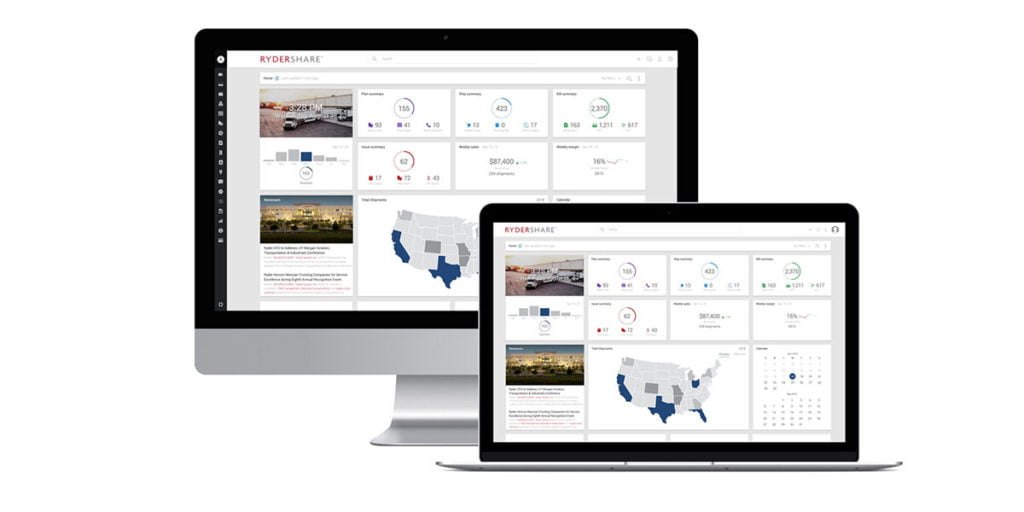Turvo’s Cloud TMS has officially expanded from truckload into fully integrated LTL execution, rating, and collaboration—right as the less-than-truckload market enters its most pivotal year in a decade. Below, we unpack the LTL freight market trends 2025 that matter to large 3PLs and brokerages, and show exactly where the new Turvo-SMC³ connection helps you capitalize.
1. Capacity Realignment After Yellow
Yellow’s 2023 bankruptcy erased roughly 5% of industry capacity. By January 2025, carriers like Estes had snapped up 939 dock doors across nine states, while R&L added a 304-door New York mega-terminal, consolidating rather than expanding net capacity.
Broker edge with Turvo: Instantly price hundreds of new regional lanes against your re-shuffled carrier map using SMC³ dynamic LTL APIs inside Turvo, then surface the lowest-total-cost option to your customer in one click.
2. Tariffs & a Grinding Macro Backdrop
ACT Research pegs 2025 U.S. GDP growth near zero, noting that pre-tariff stock-building will fade by Q2, leaving demand muted. Large importers are already re-routing through Mexico and the U.S. South, shifting lane mix toward regional LTL.
Broker edge with Turvo: Turvo’s what-if modeling lets you clone a customer’s routing guide and simulate tariff surges before they hit, so you can lock capacity early.
3. Rates: Firmer Even in a Soft Volume Cycle
The Cass Freight Index shows shipments down 5.3% YoY in March 2025, yet inferred freight rates up 3.5 %—evidence that carriers are holding price despite lighter demand. Spot volatility is lower than the post-Yellow spike, but GRIs in the 3-5% range remain the norm.
Broker edge with Turvo: Use Turvo’s live multi-carrier tender board to auto-pivot freight between contract, tiered, and spot pricing the moment rates shift.
4. NMFC Density-Based Reforms Arrive July 19 2025
The NMFTA’s first 2025 docket introduces a streamlined, density-driven classification system and a lookup tool shippers can’t ignore. Re-class fees will spike for outdated FAK agreements.
Broker edge with Turvo: Turvo captures commodity data at order entry and validates it against the new NMFC API, flagging mis-classes before the BOL prints—protecting your margin and your customer’s invoice.
5. E-Commerce & Nearshoring Fuel Regional Growth
Technavio forecasts the global LTL market will add USD 110.7 billion from 2025–2029, driven by e-commerce and AI-powered network optimization. Nearshoring to Mexico and Southeast U.S. plants is shortening haul lengths and boosting demand for next-day regional moves.
Broker edge with Turvo: Turvo’s unified TL + LTL workspace lets ops teams toggle mode at the order level, consolidate parcel spill-over into LTL, and surface regional carrier APIs for same-day quotes.
Playbook: How Large Brokers Win with Turvo’s New LTL Stack
Move | Why It Matters | Turvo Feature |
|---|---|---|
Re-score your carrier matrix quarterly | Post-Yellow acquisitions change service pairs fast | SMC³ rating + performance analytics |
Lock in tiered capacity before Q4 | GRIs stick even in soft volumes | Automated volume-tier triggers |
Audit NMFC classes now | Density reform lands mid-year | Real-time class validation |
Offer self-service LTL quoting to shippers | Cuts email latency; grows wallet-share | White-label Customer Portal |
Model tariff shock scenarios | Tariff windows create rate spikes | What-if routing & lane cloning |
Bottom Line
The 2025 LTL landscape rewards scale, speed, and data clarity. Brokers that unify execution, visibility, and customer collaboration on a single timeline will outpace those juggling spreadsheets and point tools. Turvo’s new LTL workflows, powered by its partnership with SMC³, give brokerages that advantage right when the market’s tectonic plates are shifting.
Ready to put these trends to work? Schedule a Turvo demo and see LTL, TL, and every trading partner on one networked screen.









